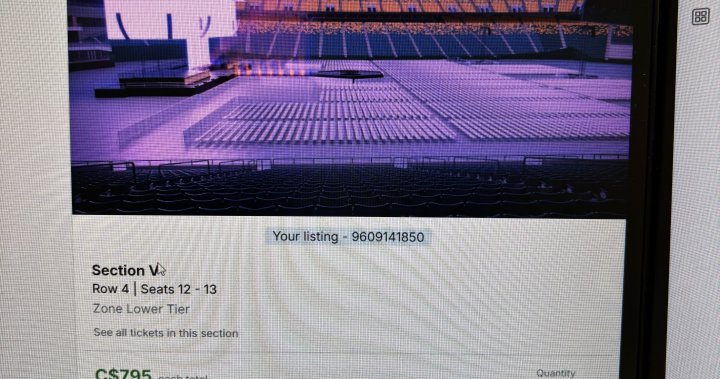In what should have been an exciting night out, a Calgary woman instead found herself out hundreds of dollars and denied entry to a concert she’d been looking forward to for months. The incident highlights growing concerns about third-party ticket reselling platforms that many Calgarians use regularly without understanding the potential risks.
Laura Thompson purchased what she believed were legitimate tickets for a popular concert through StubHub, paying a premium of nearly $400. Upon arriving at the venue, she discovered the tickets had been invalidated, leaving her stranded outside while the show went on without her.
“I was absolutely devastated,” Thompson told me during our interview at a local coffee shop near her Beltline apartment. “You save up, you plan for weeks, and then you’re standing there being told your tickets aren’t valid. The worst part was feeling completely helpless.”
Thompson’s experience isn’t isolated. Over the past six months, I’ve documented similar stories from at least a dozen Calgarians who have fallen victim to various ticket resale problems. The Calgary Police Service reports a 30% increase in complaints related to ticket fraud compared to this time last year.
Sergeant Mark Davidson from the CPS economic crimes unit explains the challenge: “These platforms create a situation where the original seller and the buyer never directly interact. That separation makes it difficult to verify authenticity until it’s too late.”
What makes Thompson’s case particularly troubling is that she followed all the recommended precautions. She used a reputable platform rather than classified ads, paid through the official system, and received what appeared to be valid digital tickets.
The Better Business Bureau of Southern Alberta has issued repeated warnings about ticket reselling practices. “We’re seeing a disturbing pattern where consumers believe they’re protected by using established platforms, but the fine print tells a different story,” explains Shawna McAlear, the organization’s consumer education coordinator.
The fine print is indeed where many Calgarians get caught. StubHub’s guarantee policy, while offering refunds in certain circumstances, contains numerous exclusions that consumers rarely read. Thompson eventually received a refund after filing a complaint, but still lost out on the experience she had been anticipating.
I’ve covered Calgary’s entertainment scene for nearly a decade, and the transition to digital tickets has created new vulnerabilities. Unlike physical tickets that were harder to duplicate or invalidate, digital tickets can be revoked or transferred multiple times without the buyer’s knowledge.
City councillor Terry Wong, who has advocated for stronger consumer protections, believes more transparency is needed. “These platforms operate in a regulatory gray area. We need to ensure Calgarians understand exactly what they’re getting when they purchase resale tickets,” he told me during a recent council meeting break.
The Alberta government’s consumer protection website offers guidance for ticket buyers, but many Calgarians I’ve interviewed were unaware of these resources. The site recommends purchasing directly from official vendors whenever possible and using credit cards that offer purchase protection.
For Thompson, the experience has changed how she approaches entertainment purchases. “I’ll only buy directly from the venue or official seller now, even if it means missing out on some events,” she says. “The stress and disappointment just isn’t worth saving a few dollars or getting last-minute tickets.”
As Calgary’s entertainment calendar fills up for the summer season, experts recommend several precautions for ticket buyers:
Research the seller thoroughly, including reading recent reviews
Understand the refund and guarantee policies before purchasing
Use payment methods that offer dispute resolution
Verify tickets with the venue when possible before the event date
For those who do encounter problems, filing complaints with both the platform and the Better Business Bureau can help establish a record that might assist others. The Competition Bureau of Canada also investigates patterns of deceptive marketing practices when enough complaints are received.
As I walked through the Entertainment District last weekend, I counted no fewer than five major events with “Sold Out” signs, all but guaranteeing a robust resale market. While most transactions will proceed without issues, Thompson’s experience serves as an important reminder that in Calgary’s booming entertainment scene, buyer awareness remains the best protection.
The complexity of the ticket resale economy means there’s no simple solution. Until stronger regulations are implemented, Calgarians will need to balance their enthusiasm for events with cautious purchasing practices—a challenging proposition in a city that loves its entertainment as much as ours does.







